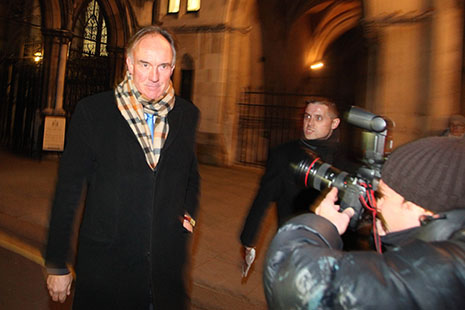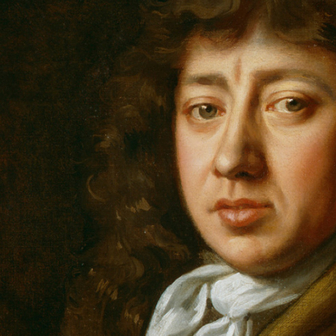IT WAS, by any reckoning, an impressive performance. Rupert Murdoch faced ten hours of questioning over two days last week by a leading QC at Britain’s Leveson inquiry into press standards and seemed to emerge unscathed. No damaging admissions; no smoking guns. He was much sharper, much more on top of his brief, than when he appeared before a parliamentary committee last year.
For those in search of dramatic pyrotechnics, it was a disappointment. His inquisitor, Robert Jay QC, calmly put his well-researched questions, and Rupert, showing admirable discipline and focus, controlled the pace and tone of the hearing, with long pauses, then brief but definitive answers framed to be as anodyne as possible.
Few of Murdoch’s critics will believe his blanket denials that he never sought or received any favours from successive British prime ministers. Many will wonder why – according to his testimony – so many people have managed to get it so wrong in their published accounts of meetings with him, and perhaps also ask why it is only now that he has seen fit to deny claims that in some cases had been in the public domain for decades. But such intangible public scepticism matters little to News Corp, whose main concern will be whether any official case can be mounted that will adversely affect its corporate interests.
Murdoch had the advantage that there is no independent evidence to challenge most of his accounts of meetings with politicians. Even though some, such as former prime minister Gordon Brown and former Times and Sunday Times editor Harold Evans, immediately challenged the Murdoch version, theirs simply remained conflicting versions.
In contrast, when James Murdoch testified the previous day, the inquiry published 163 pages of emails News International had given them about interactions between the company and the office of the British culture secretary, Jeremy Hunt. Jay QC put it to James that Hunt had acted as a cheerleader, rather than impartial arbiter, in relation to Murdoch’s bid to increase his shareholding in BSkyB from 39 per cent to 100 per cent. An immediate casualty was Hunt’s unfortunate staff member Adam Smith, required to resign for allegedly exceeding his authority in dealings with News. David Cameron’s government has so far resisted opposition demands that Hunt resign.
The second day’s questioning of Rupert concentrated on the News of the World scandals, and here he was forced to go beyond studied evasiveness and impenetrable denials. While the public focus in such inquiries is on “gotcha” moments when a damaging lie is revealed or an admission of guilt secured, their importance more commonly lies in how the testimony under oath feeds into longer-term processes of investigation. Most revealing of all was the way Murdoch sought to draw the line between guilt and innocence, which among other things signalled to his employees and associates who is to be protected and who will be cast aside.
Here, one obvious contrast was between the disdainful way he spoke of the News of the World (an “aberration” which he says he closed in panic at the height of the scandal last year, but which he also wished he had closed years earlier) and the way he was at pains to praise the Sun newspaper. He alienated past employees on the Sunday paper but was no doubt hoping he could secure continuing loyalty from the daily’s journalists.
A much more tangible outcome might follow from his continuing determination to protect James and his former senior executive Rebekah Brooks, and to do so at the expense of the last News of the World editor Colin Myler and News International lawyer Tom Crone. Both men told the parliamentary committee last year that they had informed James that a £1 million payout to English football identity Gordon Taylor was necessary because any court case would reveal more about the paper’s phone hacking. James was adamant that they hadn’t said this.
With their latest testimony, both Murdochs have escalated their attacks on Myler and Crone. James claimed in his Tuesday testimony that News International executives had withheld the information about phone hacking from him because they feared he would “cut out the cancer.” Rupert pointed at the same two conspirators, arguing that the internal investigation of phone hacking had been a cover-up. He seemed to place the primary blame on “someone [who] took charge of a cover-up which we were victim to… [T]he person I’m thinking of was a friend of the journalists and a drinking pal and a clever lawyer… and he forbade people to go and report to Mrs Brooks or to James.”
So it is no longer just a case of conflicting memories. Now it’s alleged that Crone deliberately misled his superiors. Crone, who worked as News International’s lawyer for more than two decades, immediately issued a statement saying that Rupert’s allegation was a “shameful lie.”
There are several threads running together in this scandal. This week, with the Leveson inquiry in recess, the House of Commons culture committee reported, and Crone also finds himself figuring, uncomfortably, in its conclusions. The report’s most important finding is its declaration that Rupert Murdoch is not a fit person to exercise stewardship of a major company.
Murdoch immediately seized on the fact that this was not a unanimous conclusion and reflected a split along party lines. The Conservatives voted against it, mainly because such a conclusion, they said, went beyond the committee’s terms of reference. But tellingly for Murdoch, their coalition partner, the one Liberal Democrat on the committee, voted with Labour to support a majority against Murdoch. Even the fact that all Labour MPs would vote for such a strong conclusion shows just how far Murdoch’s political fortunes have diminished.
Many damning parts of the report attracted unanimous support among committee members. James Murdoch was found to have shown wilful ignorance of the extent of phone hacking, for instance. Three senior News International employees – Tyler, Crone and Les Hinton, who worked for News for fifty years, and had been head of News International in Britain (replaced by James) before becoming head of Dow Jones in New York – were all found guilty of misleading the committee. The House of Commons is in the process of modernising some of its procedures, so it is not clear what punishment they will face. Although it is likely they will be required to come to parliament and apologise, if they refuse to do so then it is unlikely they will be sent to the Tower.
It’s important to note that Crone, Myler and Hinton were declared to have misled the committee not in its 2011 hearings, but in 2009. At that time, News International still had hopes that the phone hacking scandal could be contained, and had every reason to believe its defences would remain intact.
WHEN Carl Bernstein, half of the investigative team whose work eventually led to US president Richard Nixon’s downfall, described this scandal as “Murdoch’s Watergate” last year in Newsweek, it was the first time he had invoked the Watergate parallel in the years since those events took place. In an era in which virtually any scandal acquires the “-gate” suffix, this might be written off as hyperbole, but in fact the comparison with the Watergate scandal is illuminating.
The similarities are considerable. Both involved illegal surveillance. In both cases the leaders – Nixon and Murdoch – didn’t know about the offences in advance but were implicated precisely because of the organisational culture and ethos they had fostered. Both scandals would have dissipated with little public impact if not for investigative reporting – by Woodward and Bernstein on Watergate, and by the Guardian’s Nick Davies on the phone hacking – and in both cases their newspapers (the Washington Post and the Guardian) showed considerable editorial courage while receiving little initial support from the rest of the news media. In both cases, it was the official proceedings that arose from the scandal that achieved the significant outcomes, and in both cases the revelations of cover-ups added considerably to the impact of the original offences.
The Watergate break-in occurred in June 1972, and Woodward and Bernstein did much of their best reporting in the following months, but the scandal had no impact on the 1972 presidential election. Although Nixon won one of the most sweeping victories ever, the unravelling soon began.
The first big public climax came at the end of April 1973. On 27 April, Patrick Gray, Nixon’s nominee to become head of the FBI, resigned after weeks of embarrassing testimony to a congressional committee in which he revealed he had tampered with evidence, had allowed the White House counsel, John Dean, to sit in on interviews and had provided Dean with all information about the Watergate investigations. As Gray got into deeper trouble, Dean spoke to one of Nixon’s closest political advisers, John Ehrlichman, who advised him to “let him hang there; let him twist slowly, slowly in the wind.”
Three days later Nixon gave a nationwide TV address in which he announced with regret the resignations of his two closest advisers, Ehrlichman and Bob Haldeman, the departure of Attorney-General Kleindienst, and the firing of John Dean. Some weeks earlier, Dean had secretly started cooperating with prosecutors, fearing that he was being set up to take the blame for the cover-up and fully aware of how the White House had deserted Gray once it became expedient to do so.
Woodward and Bernstein’s account of the scandal was called All the President’s Men, and the title captures the process. At each stage, when one group of participants was caught its members implicated the next layer in, creating a dynamic whereby the previously impenetrable solidarity of allies disintegrated into an inchoate mass of individuals scrambling for survival.
Since the Milly Dowler scandal burst into the British media in July 2011, News International’s defences have been undergoing a similar disintegration. There is still a long way to run. Apart from the Leveson inquiry, there are forty-three people on bail who have been charged with criminal offences related to the scandal. Meanwhile the British communications regulator, Ofcom, is considering whether Murdoch is a fit and proper person to have a share of the BSkyB licence.
Last week in their testimony, Rupert and James Murdoch deliberately and unambiguously turned a longstanding intimate, Tom Crone, into an enemy. Crone was involved at all stages of the scandal. The first journalist to go to prison was the News of the World’s royal reporter, Clive Goodman. Bitter about not being reinstated after his release, he sued News International for wrongful dismissal; it was Crone, he claimed, who had promised him that if he remained loyal he could have his old job back after serving the prison term.
Crone is in a very difficult position, and no doubt he will have to juggle many competing considerations. Nixon’s lawyer, John Dean, switched sides and played an important role in the president’s downfall. Perhaps the biggest risk Rupert Murdoch took last week was when he gambled that his lawyer will not end up playing a similar role. •




